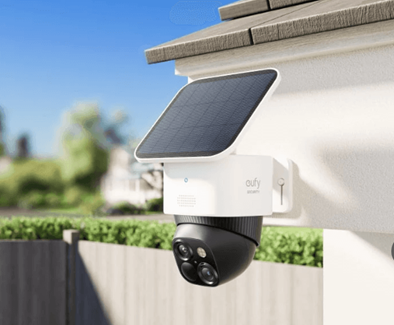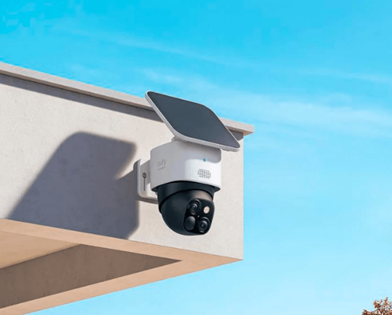All the sessions from Transform 2021 are available on-demand now.
Watch now.
Google today launched the first Android 11 beta with final SDK and NDK APIs as well as new 10 features. The company also released Android Studio improvements (including ML model importing), Kotlin coroutines, Jetpack and Jetpack Compose updates, and a refreshed Google Play Console in beta.
If that sounds like a lot, that’s because it is. All of this would have normally been shown off at Google’s I/O developer conference, where the first Android beta typically debuts, but as you know, the event was canceled due to the coronavirus. The company then planned to host the poorly named
#Android11: the Beta Launch Show
in lieu, but postponed that due to widespread U.S. protests over systemic racism and police brutality.
Today, Google canceled that online developer event as well:
Despite the delays, Google insists that Android 11 is still on schedule (the final is slated for Q3). You can download Android 11 Beta 1 now via the
Android Beta Program
, which lets you get early Android builds via over-the-air updates on select devices. If you have any of the previous previews, Google will also be pushing an over-the-air (OTA) update. The release includes the final SDK with system images for the Pixel 2, Pixel 2 XL, Pixel 3, Pixel 3 XL, Pixel 3a, Pixel 3a XL, Pixel 4, and Pixel 4 XL, as well as the official Android Emulator. Those eight Pixel phones are a tiny slice of the
over 2.5 billion monthly active Android devices
— the main reason developers are eager to see what’s new for the platform in the first place. While those are the phones Google limited the first four Android 11 developer previews to, the company is working with its OEM partners to bring Beta 1 to more devices in the coming weeks.
Webinar
Three top investment pros open up about what it takes to get your video game funded.
Watch On Demand
Until today, Android 11 was only meant for developers. Now, Google is signaling early adopters and anyone interested in beta software can try it,
give feedback
, and
report bugs
.
Android 11 Beta 1 features
Android 11 Developer Preview 1 brought 5G experiences, people and conversations improvements, Neural Networks API 1.3, privacy and security features, Google Play System updates, app compatibility, connectivity, image and camera improvements, and low latency tweaks. DP2 built on those with foldable, call screening, and more Neural Networks API improvements. DP3 included app exit reasons updates, GWP-ASan heap analysis, Android Debug Bridge (ADB) Incremental, wireless debugging, and data access auditing. DP4 didn’t have any new features. Beta 1 builds on all that.
To make compatibility testing easier for the Beta 1 features, Google has gated most breaking changes for developers until they target Android 11. That way they won’t take effect until you explicitly change your manifest. The team also added a new UI in developer options to let you toggle many of these changes for testing.
Below are the 10 new Beta 1 features. Google has split them into three themes: People, Controls, and Privacy.
Android 11 people features
Android 11 is supposed to be “more people-centric and expressive” so that “the OS that can recognize and prioritize the most important people in your life.” In other words, expect a lot of messaging functionality:
Conversation notifications
appear in a dedicated section at the top of the shade, with a people-forward design and conversation specific actions, such as opening the conversation as a bubble, creating a conversation shortcut on the home screen, or setting a reminder.
Bubbles
help users to keep conversations in view and accessible while multitasking. Google wants messaging and chat apps to use the Bubbles API on notifications in Android 11.
Consolidated keyboard suggestions
let Autofill apps and Input Method Editors (IMEs) securely offer context-specific entities and strings directly in an IME’s suggestion strip.
Voice Access
, for people who control their phone entirely by voice, now includes an on-device visual cortex that understands screen content and context, and generates labels and access points for accessibility commands.
Android 11 controls features
Android 11 makes it easier to control your smart devices:
Device Controls
help users access and control their connected devices. Simply long-press the power button to bring up device controls instantly. Apps can use a new API to appear in the controls.
Media Controls
let you switch the output device for audio or video content, whether it be headphones, speakers, or even the TV. You can enable this today from Developer Options, and it will be on by default in an upcoming Beta release.
Android 11 privacy features
Android 11 also brings more control over sensitive permissions and keeps devices more secure through faster updates:
One-time permission
lets you give an app access to the device microphone, camera, or location, just that one time. The app can request permissions again the next time the app is used.
Permissions auto-reset
: If you haven’t used an app for an extended period of time, Android 11 will “auto-reset” all of the runtime permissions associated with the app and notify you. The app can request the permissions again the next time the app is used.
Background location
: Developers need to get approval to access background location in their app to prevent misuse, but Google won’t be enforcing this previously announced policy for existing apps until 2021.
Google Play System Updates
, launched last year, expedite updates of core OS components to devices in the Android ecosystem. Google is doubling the number of updatable modules. The 12 new modules will help improve privacy, security, and consistency for users and developers.
Android 11 beta schedule
Google launched
Android 11 DP1
in February, the earliest Android developer preview it has ever released,
Android 11 DP2
in March, and
Android 11 DP3
in April. Android 11 Beta 1 was supposed to arrive in May, but we got
Android 11 DP4
as a stopgap measure.
Last year, there were six betas. This year, it looks like there will be four developer previews and three betas. Here’s the Android 11 schedule:

February: Developer Preview 1 (Early baseline build focused on developer feedback, with new features, APIs, and behavior changes.)
March: Developer Preview 2 (Incremental update with additional features, APIs, and behavior changes.)
April: Developer Preview 3 (Incremental update for stability and performance.)
May: Developer Preview 4 (App compatibility and performance improvements.)
June: Beta 1 (Final SDK and NDK APIs; Google Play publishing open for apps targeting Android 11.)
July: Beta 2 (Platform Stability milestone. Final APIs and behaviors.)
August: Beta 3 (Release candidate build.)
Q3: Final release (Android 11 release to AOSP and ecosystem.)
If you haven’t started testing yet, now is the time. After you’ve downloaded Beta 1, update your Android Studio environment with the SDK (
setup guide
). Then install your current production app and test the user flows. For a complete rundown on what’s new, check the
API overview
,
API reference
, and
behavior changes
.
Android Studio, Kotlin, and Jetpack
Last month, Google launched
Android Studio 4.0
, the latest version of its integrated development environment (IDE). But Google already wants your help testing version 4.1 and 4.2.
Android Studio 4.1 Beta and Android Studio 4.2 Canary add the following functionality:
Wireless debugging over ADB, Database Inspector and Dependency Injection (Dagger) tools.
Android Emulator is now hosted directly inside the IDE. Tests now run side-by-side so you can see results from multiple devices at the same time. Google also improved the device manager.
You can now import your models for ML Kit and TensorFlow Lite directly in the IDE.
You can expect
Kotlin Symbol Processing
, caching of the task graph in Gradle, and faster app deployment to all devices on Android 11. The new build analyzer can help you diagnose where your build may have bottlenecks.
Updated performance profiler UI, overhauled System Trace tool, and support for native memory profiling.
Speaking of
the Kotlin programming language
, Google today shared that over 70% of the top 1,000 apps on Google Play are using Kotlin (up from 60% in December). Jetbrains has released Kotlin 1.4 with faster code completion, more powerful type inference enabled by default, function interfaces, mixing named, and positioning arguments.
Next, Google now officially recommends Kotlin coroutines, a language feature that makes concurrent calls much easier to write and understand. The company rewrote Paging 3 to be Kotlin-first with full support for coroutines. In short, Android developers can now more easily write and read concurrent calls. Google also built coroutines support into three of the most-used Jetpack libraries: Lifecycle, WorkManager, and Room.
Speaking of
Jetpack
, a set of components for speeding up app development, it has two new libraries: Hilt and App Startup. The former is a developer-friendly wrapper on top of Dagger for dependency injections and the latter helps app and library developers improve app startup time by optimizing initial libraries.
Jetpack Compose
meanwhile is now in Developer Preview 2 with new features and tools for developers to try: Interoperability with Views, Animations, Testing, Constraint Layout, Adapter list, Material UI components, Text, and editable Text. Google promises Jetpack Compose will launch in alpha this summer and hit version 1.0 next year.
Redesigned Google Play Console
The Google Play Console is what developers use to manage all phases of publishing their apps and games as part of their business. Google has redesigned it using
Material Design
, the UI design system for all Google-branded products. The console is now also responsive and supports right-to-left languages.
Google says that every page on Google Play Console “has been enhanced” and that features like Pre-launch reports, Android vitals, Statistics, and Play Game Services are all now more usable. Additionally, there are new features that let you:
Find, discover, and understand important features.
Find new guidance on policy changes, release status, advice, and user feedback.
Better understand performance insights with new acquisition reports.
Inspect each of your app bundles and understand how Google Play optimizes artifacts for your users.
Enable everyone on your team to use Play Console features with new user management options.
Google didn’t say when the console would launch out of beta, but it wants your feedback
here
.
GamesBeat
GamesBeat's creed when covering the game industry is "where passion meets business." What does this mean? We want to tell you how the news matters to you -- not just as a decision-maker at a game studio, but also as a fan of games. Whether you read our articles, listen to our podcasts, or watch our videos, GamesBeat will help you learn about the industry and enjoy engaging with it.
How will you do that? Membership includes access to:
Newsletters, such as DeanBeat
The wonderful, educational, and fun speakers at our events
Networking opportunities
Special members-only interviews, chats, and "open office" events with GamesBeat staff
Chatting with community members, GamesBeat staff, and other guests in our Discord
And maybe even a fun prize or two
Introductions to like-minded parties
Become a member









